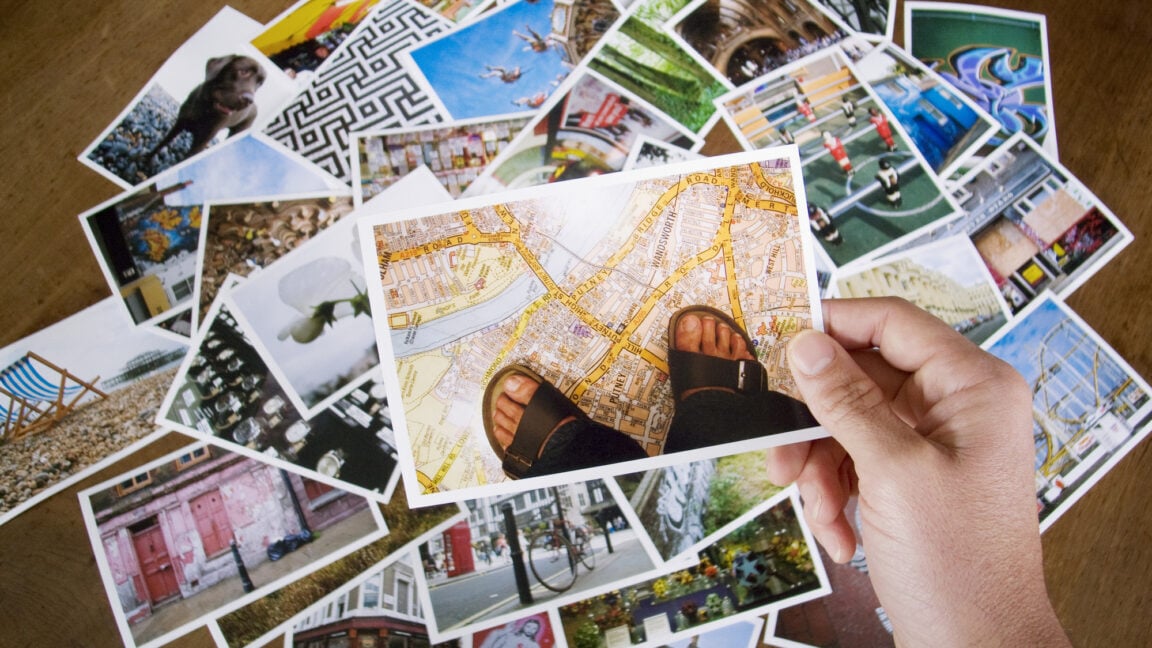- cross-posted to:
- [email protected]
- [email protected]
- cross-posted to:
- [email protected]
- [email protected]
Software engineer Vishnu Mohandas decided he would quit Google in more ways than one when he learned that the tech giant had briefly helped the US military develop AI to study drone footage. In 2020 he left his job working on Google Assistant and also stopped backing up all of his images to Google Photos. He feared that his content could be used to train AI systems, even if they weren’t specifically ones tied to the Pentagon project. “I don’t control any of the future outcomes that this will enable,” Mohandas thought. “So now, shouldn’t I be more responsible?”
The site (TheySeeYourPhotos) returns what Google Vision is able to decern from photos. You can test with any image you want or there are some sample images available.



Does anyone have any recommendations for apps to view photos that are not Google?
I use Immich, which I host locally.
Hey I was just lookin into Immich, whats some hoops or caveats before I have to debug like I had to with Frigate?
I used the docker-compose template and it worked straight away. The one thing I have run into is that I can forget to update the server long enough that the app will stop connecting. That’s happened either once or twice.
You should consider also self-hosting Changedetection, which you can point at the Immich git repo to be notified when the version changes.
There is also a snap version of immich, makes all the pain go away… at least, the snap version hasn’t had any breaking updates for me yet. It just keeps working.
If you’re technical at all, self host immich. or you and a few friends could get together and set up a pikapods for immich, it’s relatively cheap and I’ve heard great things about pikapods. I know storing photos shouldn’t require technical knowledge, but honestly unless someone you know and trust manages the service, it’s hard to know who can abuse your data. I migrated from google photos to immich myself and the app ecosystem (migration tools, mobile apps, web app) are great and provide much of what google photos provided.
Immich if you self host as others have mentioned but since this is the article shared and you don’t want to host it https://ente.io/ is what is talked about in the article
I have 0 experience with ente btw
You can also self host ente. I’ve found it to require less maintenance than immich.
This would make sense as the ente server doesn’t do much given all the photos are encrypted. All the intelligence is in the client apps.
I’ve had to do very little work on Immich in the 2(?) years I’ve hosted it.
It seemed like half the times I opened it on my phone it wouldn’t load because the app version wasn’t compatible with the server version and half the time I updated the server it had breaking changes that needed to be addressed.
Just my experience.
The number of breaking changes has really gone down. I don’t think I’ve touched the config in a year. I don’t have it auto update though, just in case.
Didn’t know that interesting I wonder how there features compare to immich
The ML categorization of images was added more recently than it was in immich and the updates are less frequent, but I like that when I open the app on my phone I can expect it to work instead of complaining that the server and app versions don’t match and are incompatible.
Seconding immich - I host it for my family which makes sharing vacation photos easy since they all have accounts on my instance that can be shared to / from.
I’ve got Immich running on a Raspberry Pi based NAS at home, which works pretty well but it’s not for beginners.
Idk about viewing but for automatically synchronizing pics (or any files really) from android to other devices syncthing is great. Its p2p so doesnt require setting up a server but its not like a “cloud storage” where you download on demand, instead it will actually write changes to disk on the other end which is actually great in case you lose your phone.
https://f-droid.org/packages/com.github.catfriend1.syncthingandroid/
For those who don’t need cloud access, I just put all of my photos on a NAS and use a digital asset manager software. digiKam is great if you want an open source solution. I use ACDSee because it’s faster and has better usability in my humble opinion. But since both of the software packages store the metadata in image files and XMP sidecars and basically only use local app-specific database for caching, if digiKam ever gets a couple of quantum leaps ahead, switching back to it isn’t that big of a deal. (As usual, don’t use Adobe Lightroom or you’re screwed in that regard. Or so I’ve been told.)
Just as someone already mentioned in this thread, I can vouch for Immich as well. I self host it (currently via Umbrel on a Pi 5 purely for simplicity) and the duplicate detection feature is very handy.
Oh, and the AI face detection feature is great for finding all the photos you have of a given person, but it sometimes screws up and thinks the same person is two different people, but it allows you to merge them anyways, so it’s fine.
The interface is great, there’s no paywalled features (although they do have a “license,” which is purely a donation) and it generally feels pretty slick.
I would warn to anyone considering trying it that it is still in heavy development, and that means it could break and lose all your photos. Keep backups, 3-2-1 rule, all that jazz.